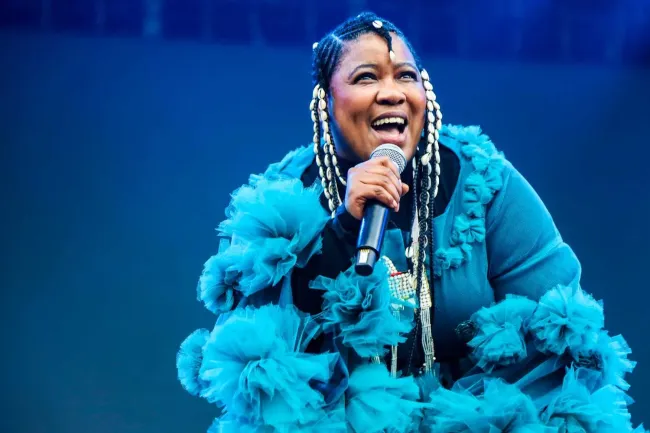Thandiswa Mazwai: The Defiant Voice of South Africa’s Post-Apartheid Generation
Let’s cut to the chase: Thandiswa Mazwai isn’t here to comfort you or sing pretty songs about a nation still grappling with its past. She’s here to disrupt, expose hard truths, and remind South Africa—and the world—that freedom isn’t a given. Since the dawn of democracy in 1994, Mazwai has been the soundtrack to a country’s highs and lows, its triumphs and failures. And she’s not holding back.
A Firebrand from the Start
Born in Soweto during the height of apartheid’s oppression, Mazwai didn’t just watch history unfold—she lived it. Her parents, both journalists and activists, taught her early on that silence is betrayal. By the time she joined the revolutionary kwaito group Bongo Maffin in the mid-1990s, Mazwai was already a force to be reckoned with. Kwaito wasn’t just music; it was a defiant celebration of Black identity—a raw and unfiltered expression of a generation refusing to be silenced.
But Mazwai didn’t stop there. When she launched her solo career with Zabalaza in 2004, she didn’t just sing—she made a statement. The album, whose title means “rebellion,” was a wake-up call to a nation still grappling with inequality, corruption, and the lingering scars of apartheid. Her lyrics were sharp, fearless, and unapologetically political. She didn’t just sing about the people’s struggles—she shouted them.
A Voice Against Injustice
Let’s be honest: South Africa’s post-apartheid journey hasn’t been the dream many hoped for. And Mazwai isn’t afraid to say it. In her music, she’s called out “fools for leaders” and “thieves” who “should leave Parliament.” She’s not here to sugarcoat reality or play nice with those in power.
Her latest album, Sankofa (2024), is a powerful critique of broken promises and unfulfilled potential. Tracks like “Dark Side of the Rainbow” deliver a scathing indictment of the systemic failures that have plagued South Africa’s democracy.
But Mazwai isn’t just about tearing down—she’s about rebuilding. Sankofa, which means “to go back and reclaim what’s been lost,” is a call to rediscover Africa’s cultural heritage and redefine its future. It’s a reminder that the fight for freedom is far from over and that the voices of the people—her voice—will not be silenced.
A Global Icon, Rooted in Home
Mazwai’s influence stretches far beyond South Africa’s borders. She’s performed for Nelson Mandela, collaborated with legends like Hugh Masekela and Miriam Makeba, and brought her electrifying energy to global stages. But don’t mistake her international acclaim for detachment—Mazwai’s heart and soul remain deeply connected to her homeland.
She’s used her platform to shine a light on the struggles of marginalized communities, from Black lesbians facing violence to the poor and disenfranchised left behind by the so-called “rainbow nation.” Her life, as she puts it, is “political,” and her music is a weapon in the fight for justice and equality.
Uncompromising and Unafraid
Here’s the thing about Thandiswa Mazwai: she doesn’t care if her music makes you uncomfortable. She doesn’t care if her lyrics force you to confront your own complacency. She’s not here to entertain the elite or placate the powerful. She’s here to speak truth to power, channel the people’s joy and pain, and remind us all that the struggle continues.
If you’re looking for feel-good anthems or mindless pop, look elsewhere. But if you want music that challenges, provokes, and inspires, Thandiswa Mazwai is your artist. Her albums—Zabalaza,Ibokwe, and Sankofa—are more than just music. They’re a call to action, a demand for accountability, and a testament to the resilience of a people who refuse to be broken.
The Final Word
Thandiswa Mazwai isn’t just the voice of South Africa’s post-apartheid generation—she’s its conscience. And she’s not going anywhere. As long as there are stories to tell, injustices to fight, and truths to speak, Mazwai will be there, microphone in hand, ready to amplify the people’s voice.
So, listen closely. Because when Thandiswa Mazwai speaks, the world needs to hear.
